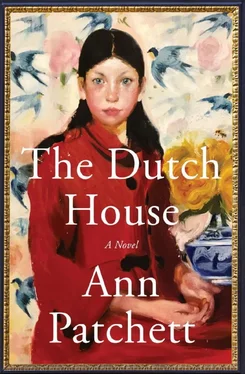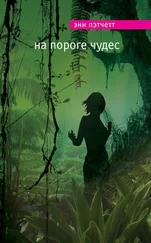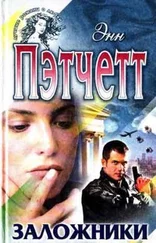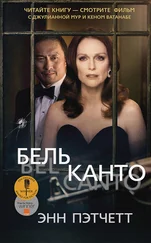“Don’t waste time calling me! Call an ambulance.” My voice was splintering.
“Oh, Danny,” my mother said, and then she started to cry.
Iremember very little about the time just after Maeve died, except for Mr. Otterson, who sat with the family at her funeral Mass and covered his face with his hands as he cried. His grief was a river as deep and as wide as my own. I knew that I should have gone to him later, I should have tried to comfort him, but there was no comfort in me.
The story of my sister was the only one I was ever meant to tell, but there are still a few things to say. Three years later, when Celeste and I were working through the details of our divorce in the lawyer’s office, she told me she didn’t want the house. “I never liked it,” she said.
“Our house?”
She shook her head. “It’s not my taste. It’s heavy and old. It’s too dark. You don’t have to think about that because you aren’t home all day.”
I’d wanted to surprise her. I took her through every room, letting her think it was something I was planning to buy as a rental. I told her I could cut it into two units. I could even make it four, though that, of course, would be real work. Celeste, infinitely game, went up and down the stairs with May strapped to her chest, looking at the bathrooms, checking the water pressure. I didn’t ask her if she liked it then. I could have but I didn’t. I handed her the deed instead. In my mind it had been one of the few truly romantic gestures I’d ever made. “It’s our house,” I said.
Everything in me wanted to excuse myself from the proceedings and go out to the hall and call my sister. That never stopped happening.
The irony, of course, was that I had been a better husband after Maeve died. In my grief I had turned to my family. For the first time I was fully with them, a citizen of New York, my wife and my children the anchors that held me to the world. But the joke I’d always half-believed turned out to be true: everything Celeste hated about me she blamed on my sister, and when my sister wasn’t there to take the blame, she was forced to consider who she was married to.
Our mother stayed on in the Dutch House to take care of Andrea, and for years I didn’t forgive her. Despite whatever residual bits of science still clung to me, I had come to believe the story our father told when we were children: Maeve got sick because our mother left, and if our mother ever came back, Maeve would die. Even the stupidest ideas have resonance once they’ve happened. I blamed myself for what I saw as my lack of vigilance. I thought of my sister every hour. I let our mother go.
But then one day, after we had been divorced long enough to be friendly again, Celeste asked me to drive a carload of things to her parents’ house, and I said yes. Even the Norcrosses had slowed down, the last of the unruly Labradors replaced by a small, friendly spaniel named Inky. After I unloaded the car and we had our visit, I drove over to the Dutch House for old times’ sake, thinking I would park across the street for just a minute. But whatever barrier had kept us from turning in the driveway all those years was gone now, and I went to the house and rang the bell.
Sandy answered.
We stood there in the foyer in the afternoon light. Again, I had expected deterioration to have come at last, and again I found the house to be exactly as I remembered. It irritated me to have to see the tenderness with which it had been maintained.
“I didn’t come for a long time,” Sandy said guiltily, holding onto my hand, her thick white hair still pinned in place with barrettes. “But I missed your mother. I kept thinking of Maeve, what she would have wanted me to do. No one’s getting any younger.”
“I’m glad you’re here,” I said.
“I just come by for lunch sometimes. Sometimes there’s something I can do to help out. The truth is it’s nice for me. I fill up Norma’s bird feeders in the back. Norma loves the birds. She got that from your dad.”
I looked up at the high ceiling, into the chandelier. “Lots of ghosts.”
Sandy smiled. “The ghosts are what I come for. I think about Jocelyn when I’m here, the way we were then. We were all so young, you know. We were still our best selves.”
Jocelyn had died two years before. She had the flu, and by the time anyone realized how serious things were, it was over. Celeste came with me to the funeral. The Norcrosses came. For the record, Jocelyn never had forgiven my mother, though she was nicer about it than I was. “She left us there to raise you but you couldn’t be ours,” she said to me once. “How am I supposed to forgive a thing like that?”
Sandy and I went to the kitchen and I sat at the little table while she made coffee. I asked about Andrea.
“A toothless beast,” she said. “She doesn’t know a thing. Norma really could move her out of here now and sell the place, but there’s always this feeling that Andrea’s going to die any minute, and what would be the point of seeing her through all these years just to shuttle her out at the end?”
“Unless it isn’t the end.”
Sandy sighed and took a small carton of milk from the refrigerator. The refrigerator was new. “Who knows? I think of my husband. He was thirty-six when he got an infection in his heart. No one knew why. And then Maeve, who was stronger than all the rest of us put together. Even with the diabetes, Maeve should have lived to be a hundred.”
I had never known what Sandy’s husband died of, nor did I know his name. I didn’t know what had killed Maeve for that matter, though there were a wealth of options. I thought of Celeste’s brother Teddy at Thanksgiving all those years ago, asking me if I had to perform autopsies. I had performed plenty of them, and I would never let anyone subject my sister to that. “She should have outlived Andrea at the very least.”
“But that’s the way it goes,” Sandy said.
I found it a comfort to be in that kitchen with her. The stove and the window and Sandy and the clock. There on the table between us was the pressed-glass butter dish that had belonged to my mother’s mother in Brooklyn, a half-stick of butter inside. “Look at that,” I said, and ran my finger along the edge.
“You shouldn’t be so hard on your mother,” Sandy said.
Wasn’t that what I was always saying to May? “I don’t think I am.” We had overlapped very little in our lives, my mother and I. I couldn’t imagine it was much of a loss for either of us.
“She’s a saint,” Sandy said.
I smiled at her. No one was kinder than Sandy. “She’s not a saint. Taking care of someone who doesn’t know you doesn’t make you a saint.”
Sandy nodded, took a sip of coffee. “I think it’s hard for people like us to understand. To tell you the truth, it’s unbearable sometimes, at least it is for me. I just want her to be one of us. But when you think about saints, I don’t imagine any of them made their families happy.”
“Probably not.” I couldn’t remember the saints themselves, much less their families.
Sandy put her small hand on top of my hand, squeezed. “Go upstairs and say hello.”
And so I went up to my parents’ room, wondering why a man with a bad knee would have bought a house with so many stairs. There on the landing was the little couch and the two chairs where Norma and Bright liked to sit with their dolls so they could see who was coming and going. I looked at the doors to my room, to Maeve’s room. It wasn’t hard. I had the idea that all of the hard things had already happened.
Andrea was in a hospital bed by the window, my mother sitting beside her, spooning in bites of pudding. My mother still wore her hair short. It was white now. I wondered what Andrea would have thought had she known that this was her husband’s first wife feeding her, and that the first wife had often had lice.
Читать дальше





![Энн Пэтчетт - Прощальный фокус [litres]](/books/402782/enn-petchett-prochalnyj-fokus-litres-thumb.webp)






